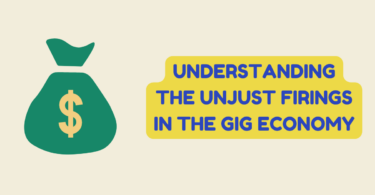
Prepare for a Therapy Session
Thinking about your first therapy session may bring butterflies to your stomach. You know therapy has many benefits, and part of you is ready to get things started. Yet, you feel nervous because you don’t know what to expect, especially if you’re not used to sharing personal thoughts and feelings with others. Getting prepared for your session may include doing a few things before each session to get you feeling comfortable and ready.
Taking time to prepare before your session may help ease your nerves while planning to make the most of the time spent. Here are a few things you can do to prepare for your session.
Set Realistic Goals for Your Sessions
What do you hope to accomplish in therapy, and why? Preparing for your session includes staying focused on why you chose to go to therapy in the first place. Think about why you need therapy and consider how you want to use your time in the session. What things are weighing heavy on you the most that you hope therapy can assist with?
Set Aside Time for Yourself Before and After Your Session
Make time before the session to acknowledge your feelings. Take a few deep breaths, turn off your cell phone, and think about your thoughts and what you want to discuss. Use time after the session to reflect on what you have learned. Make notes on what you hope to accomplish during the session and notice the most significant contributions that relate to progress after the session.
Have Questions Ready to Ask
If this is your first time attending a therapy session, you may have questions about what to expect. Asking questions about your thoughts and feelings or even about tools and resources gained in therapy may help you relax and open up. Think about what you hope to accomplish with therapy to help you come up with questions. You can make a list to keep and add to as you have more sessions. You can also search online for common questions to ask a therapist or counselor to get ideas.
Choose a Convenient Time to Have Sessions
Whether you choose to have sessions online with online mental platforms such as, https://www.mytherapist.com/advice/counselors/ or in-person, selecting a convenient time slot may help you get comfortable with opening up. It shows you are making time to work on yourself, and you have something positive to look forward to.
Be Honest and Open with Your Feelings
You won’t get the most out of therapy if you’re not honest. Being truthful about your thoughts and feelings is crucial. It may feel awkward initially, but it will help you see progress, and you’ll learn more about why certain things have a profound effect on you and your life. Your first session may not require in-depth sharing of details, but being open and honest is part of the self-healing process as therapy progresses. Making progress and setting goals may include feeling uncomfortable. The therapist is there to help you, not judge you. What you say in therapy is private and confidential.
Taking steps to prepare for your therapy session helps you understand what to look forward to. Some people are nervous for different reasons, and that is okay. Remember, therapy sessions are meant to help you deal with your emotions and ultimately establish solutions to problems. Be open to making changes and use the time spent during your sessions to keep yourself encouraged. Think about your goals and what is necessary to reach them. It is okay to feel uncomfortable if you don’t like the therapist. In many cases, they can help you find someone that is a better fit for your situation.






